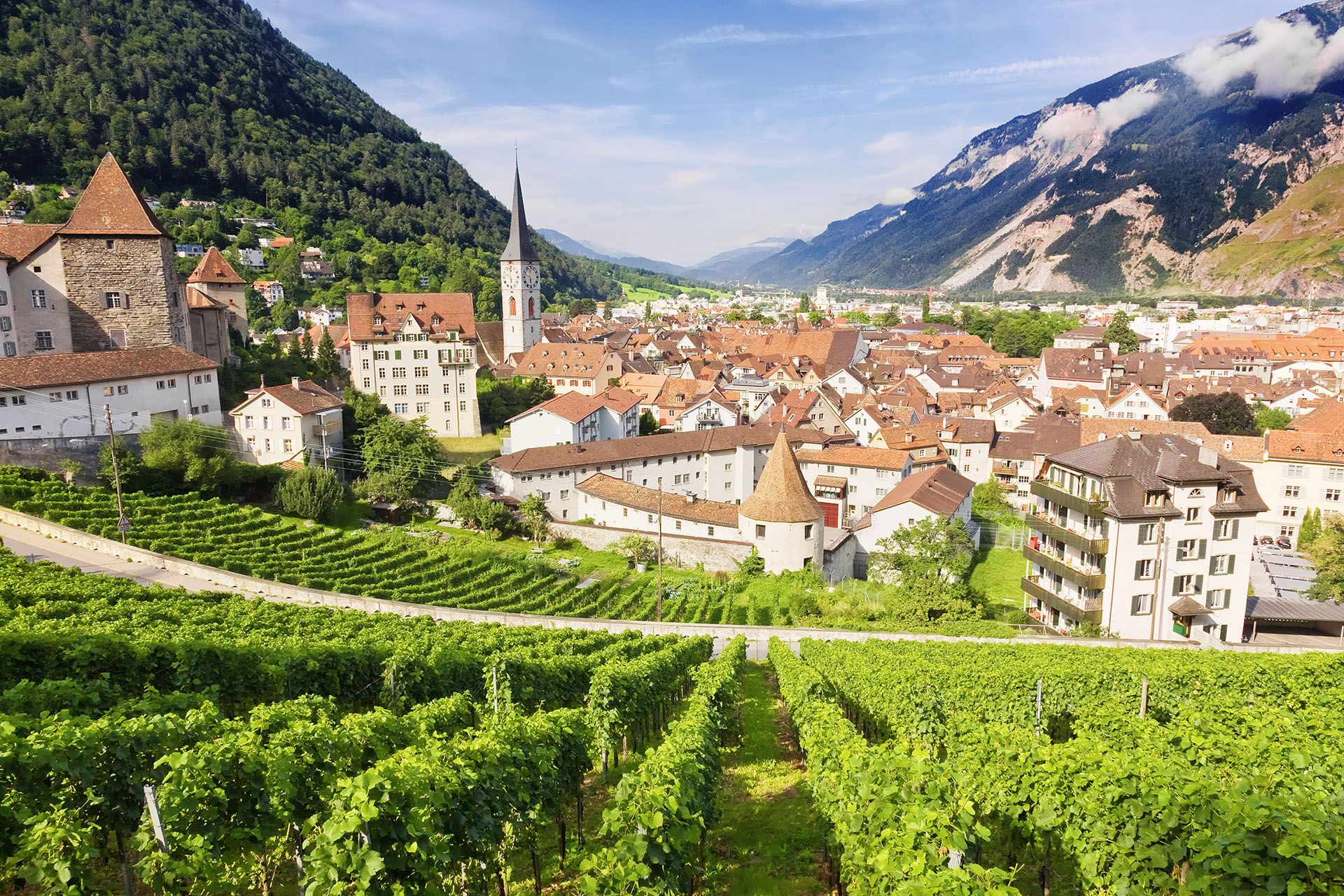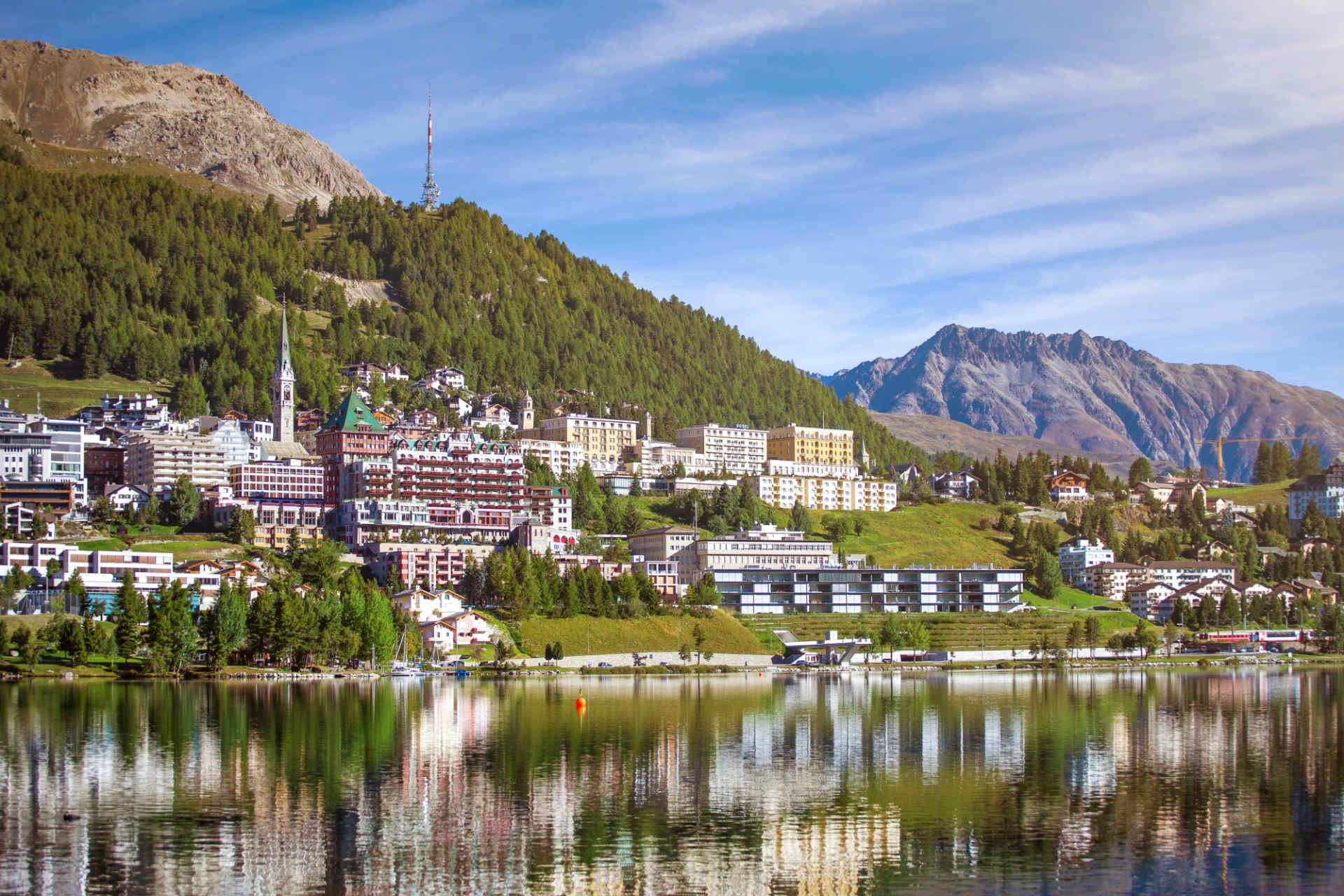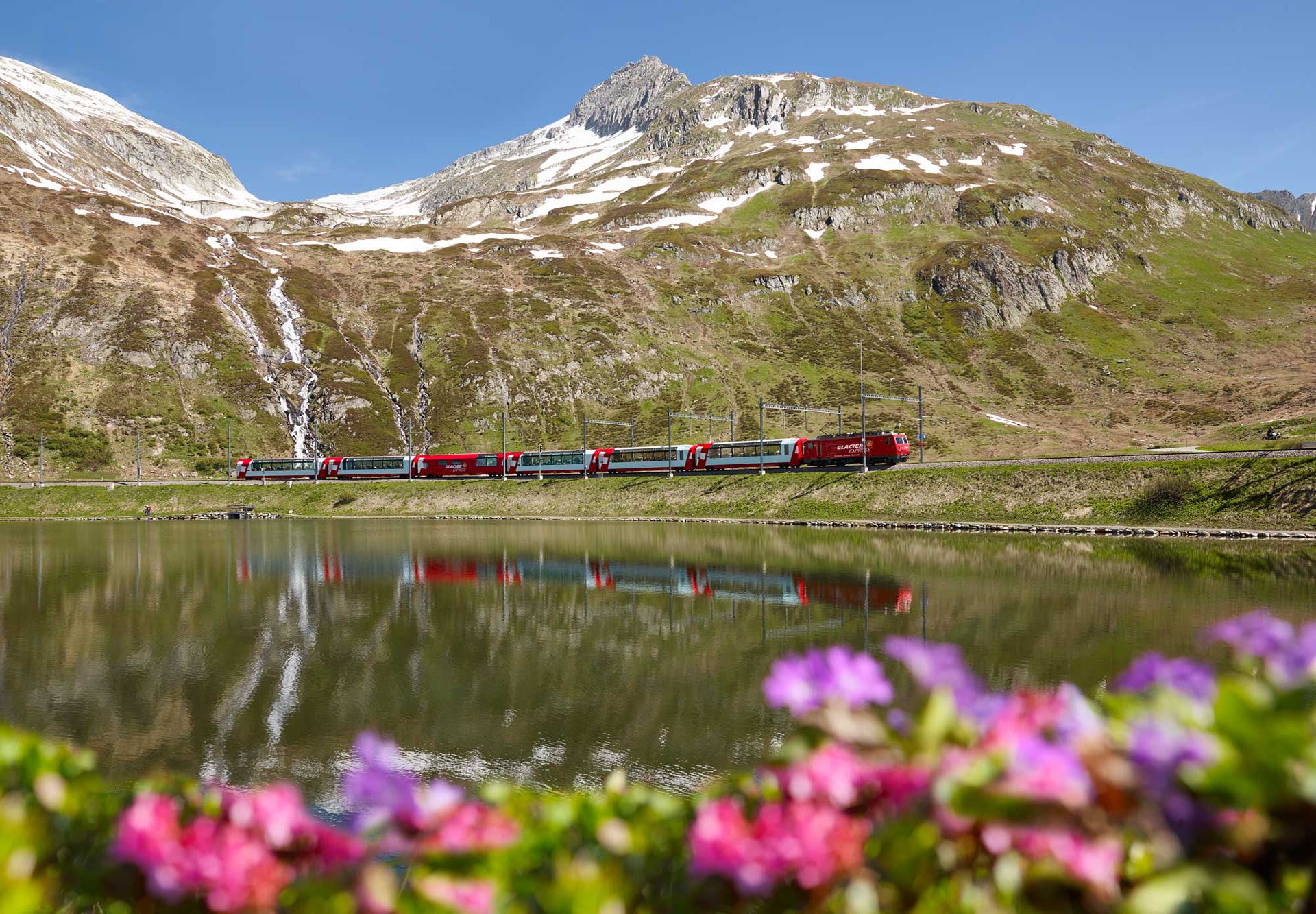Parc Naziunal Svizzer — the Swiss National Park
Amazingly enough, the Parc Naziunal Svizzer is Switzerland's sole national park.
Accessed from Zernez, the park is a protected Alpine wilderness that's ripe for walking and hiking, and spreads for 169 square kilometres.
Great day tours and excursions in Graubünden
Heididorf and the Heidialp trail
Despite the lack of evidence linking Spyri’s story with any particular house, an old chalet in the former hamlet of Oberrofels, now renamed Heididorf, has been reborn as “the original Heidi’s House”.
A scenic trail from Heididorf leads up through woodland to “Heidialp” in the mountains. The path is punctuated by child-friendly information and activities along the way to “Heidi’s Alp Hut” — purportedly Heidi’s grandfather’s house,
Bündner Herrschaft
The east bank of the Rhine around Maienfeld is one of Switzerland’s more unusual winemaking areas, dubbed the Bündner Herrschaft.
Thanks to the warm southerly Föhn wind, which can sometimes raise summer temperatures well above 25°C, Pinot Noir grapes prosper here.
The villages are linked by footpaths and have good rustic inns in which to enjoy a carafe of local wine as you explore.
Alternatively, book a wine-tasting tour around the Graubünden region, including Heidiland.
Therme Vals
Reachable on a minor road that heads south from Ilanz between high valley walls, the spa village of Vals is where Swiss architect Peter Zumthor has built the spectacular Therme Vals complex.
The building is effortlessly sleek and sensuous — all water, natural light, wood and polished stone, and the spa has every facility, including therapy treatments.
Guests at the stylish attached House of Architects hotel benefit from extended hours and discounts.
Sils
Beyond the Lej da Silvaplauna lies the quiet village of Sils, which offers ethereally beautiful views over the Lej da Segl, acclaimed by a century of artistic and literary visitors – not least Hermann Hesse, Marc Chagall, Richard Strauss and Friedrich Nietzsche.
In fact, this was Nietzsche's summer home for eight creative years, and his modest house has been turned into the Nietzsche-Haus museum.
Here you can see manuscripts and the room in which he wrote his most celebrated work, Also Sprach Zarathustra.

_listing_1640555873127.jpeg)

_listing_1640541925318.jpeg)







